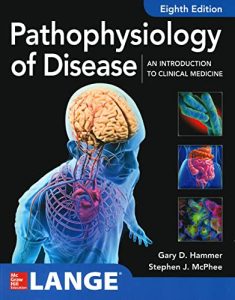N512-19A Module 4 Disorders of the Nervous System Across the Life Span Discussion
N512-19A Module 4 Disorders of the Nervous System Across the Life Span Discussion
N512-19A Module 4 Disorders of the Nervous System Across the Life Span Discussion
Discussion 4
Marisol Arroyo, age 23 y.o., and unmarried, accompanies her mother, Julia, who is a 68 y.o., divorced Latina female, to her appointment with her primary care Nurse Practitioner. Both Marisol and her mother, who live together, have noted that her ever-present forgetfulness seems to be worsening.
Just yesterday she walked to the corner store for a few items, which she obtained, but even though she had been to this store many times over the years, she found herself unable to get home without directions.
Marisol also notes that her mother’s hygiene is changing, that she is becoming more and more quarrelsome, and that she forgets information she had been told as little as 10 minutes earlier. The Nurse Practitioner is attempting to rule out whether this patient may have some form of dementia or delirium.
In this discussion:
- Describe and discuss the unique pathophysiology of Dementia of the Alzheimer’s Type.
- If this patient is diagnosed with Alzheimer’s dementia, describe and discuss with your colleagues a potential clinical course, and prognosis for her.
- Describe and discuss your plan of care for this patient with both short-term and long-term plans considering current social supports and health-care access.
Include citations from the text or the external literature in your discussion posts.
Remember to respond to at least two of your peers. Please refer to the Course Syllabus for Participation Guidelines & Grading Criteria.
N512-19A Module 4 Disorders of the Nervous System Across the Life Span Discussion: Sample Discussion 4 Solution
Alzheimer’s Disease is the most common cause of dementia and accounts for more than 50%of its cases (Hammer 2019). the pathology of Alzheimer’s Disease is characterized by extracellular neuritic plaques in the cerebral cortex and in the walls of meningeal and cerebral blood vessels (Hammer 2019).
Dementia of the Alzheimer’s type is a noncurable progressive disease causing neurological deficits. A potential clinical course of action will be maintaining a medication regimen, home care planning, and end-of-life care preparations.
I would suggest the patient have their medications prepared by a family member or a pharmacy that will distribute the medications in prepackaged daily containers. Medications are not a cure; however, they may help to slow disease progression. The patient’s memory will be affected, and these actions will help prevent missing medication doses or overdosing on medications.
Home care planning will be necessary, working with a home health company; an evaluation will be conducted to ensure a safe home environment. The provider will consider a need to order medical supplies such as a bedside commode or an adjustable bed. Marisol Arroyo, age 23 y.o., and unmarried, accompanies her mother, Julia, a 68 y.o., divorced Latina female, to her appointment with her primary care Nurse Practitioner.
Both Marisol and her mother, who live together, have noted that her ever-present forgetfulness seems to be worsening. Julia will need a home care provider to keep her safe and prevent her from becoming lost.A provider will help with hygiene, and Julia will have more dignity having her care provided by a professional as opposed to a close family member.
A medical power of attorney will need to be established along with an advanced directive. In the beginning stages of dementia, the patient and their family can have conversations about resuscitation and wishes. This conversation will take the burden of stress off Marisol. She will be fulfilling her mother’s wishes and avoid wondering what she should do and feeling guilt for prolonging her mother’s life or giving up too soon.
At the end-of-life stage, a hospice evaluation can be made to guide the family in palliative care. Goals to establish in one week of Julia’s visit will be to get the medications organized in a daily pill container by Marisol or a pharmacy the can prepackage morning and evening doses. In the first week, the patient will be seen by a case manager from a home health company that can provide Julia’s home care when Marisol is working or out of the house.
In six months, Julia and Marisol will openly discuss and have an established advanced directive and living will and legally binding power of attorney. The purpose of a treatment plan will be to reduce stress for the patient and family. The care plan will create a safe environment for the patient by preventing falls and ensuring that Julia does not get lost when leaving the house. Julia and Marisol will make this period in time a special period that will help them cope and grieve.
Management of vascular dementia should focus on identifying and managing comorbidities, ensuring that vascular risk factors are optimally managed, ensuring appropriate recognition and management of non-cognitive symptoms, and appropriate psychosocial and other support to optimise quality of life for patients and carers (O’Brien 2015).
Reference

- Hammer, G.,& McPhee, S. (2019). Pathophysiology of disease: An introduction to clinical medicine (8th ed). McGraw-Hill O’Brien, J.,T., & Thomas, A. (2015). Vascular dementia. The Lancet, 386(10004), 1698-1706. doi:http://dx.doi.org.americansentinel.idm.oclc.org/10.1016/S0140-6736(15)00463-8
In reply to LD
N512-19A Module 4 Disorders of the Nervous System Across the Life Span
I like your idea of having a provider or caregiver come into Julia’s home to help with bathing and other cares. This will reduce Marisol’s stress of having to provide cares on her mother she is uncomfortable with and as you mentioned give Julia a little more dignity than having a family member provide care that may feel uncomfortable. Having a medical power of attorney along with an advanced directive in place is also a great idea; this will relieve the stress of not knowing Julia’s wishes.Amanda
Reference
- Rebar, C., Heimgartner, N., & Gersch, C. (2019). Pathophysiology made incredibly easy (6th ed). Wolters Kluwer
